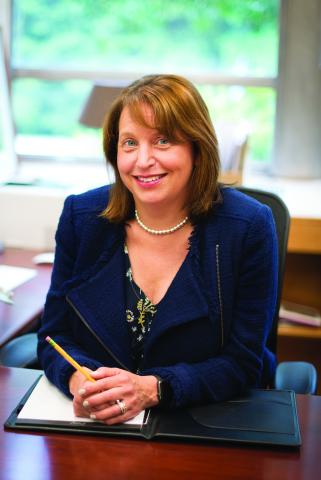What's in the Future?
Sharing a vision of leadership for the GSSWSR.
Prior to becoming the dean, I occupied many other roles at the Graduate School of Social Work and Social Research (GSSWSR)—faculty member, director of the Center of Child and Family Wellbeing, and convener of the clinical social work sequence. Those experiences gave me a strong sense of the School’s history as a leader in its commitment to the highest-quality social work education, at both the micro and macro levels, and a deep appreciation of the way that the work of our alumni builds on that foundation every day.
Since becoming dean last year, I have devoted most of my attention to one overarching question: What should the future of the GSSWSR look like? And as the School begins its second century, I’ve been thinking about how to honor our history of excellence, our core mission, and our values—and at the same time, how to support innovative approaches within our ongoing commitment to social justice, to diversity, and to inclusion.
Over the past couple of years, faculty and staff have worked together on a strategic planning process that has identified two principal areas for the School going forward: children, families, and society, and health and mental health across the lifespan.
This process also inspired us to sharpen our focus on the emerging importance of trauma-informed social work. Recent research has changed the understanding of trauma and its impact on development over time. Trauma-informed social work practice combines an understanding of developmental, neurobiological, and social-ecological approaches to social work to help a range of clients.
To that end, we have launched many new curricular commitments. Indeed, right now, faculty representing every core area of the School are co-constructing a new course on trauma-informed social work, that, starting in September 2019, will be required of every student who comes to the GSSWSR. In addition, we’re building new electives that align with this focus, and we’re exploring what it means—to students, to faculty, to staff—to become a trauma-informed school of social work.
But we cannot stop at curriculum development. I’ve become very aware that we need to look at how to increase the accessibility and the feasibility of a GSSWSR education. Making the School more accessible to more people is an issue of social justice, of educational equity and access.
So what has that meant?
- Our new part-time program, launched this fall, enables students to finish coursework in three years, going to school in evenings and, ultimately, in hybrid courses.
- We are transforming the way we communicate on the website and social media. (So check us out on Facebook, Instagram, and Twitter.)
- We are developing more global opportunities. This summer, Carolina Hausmann-Stabile and her students, for instance, conducted research in Latin America, and a recent alum is working with a Chilean organization.
- We have new programs in student services to help the transition into the GSSWSR—and out into the workplace.
- We have launched a new A.B./M.S.S. program to build a bridge with the undergraduate college.
Published on: 11/14/2018
